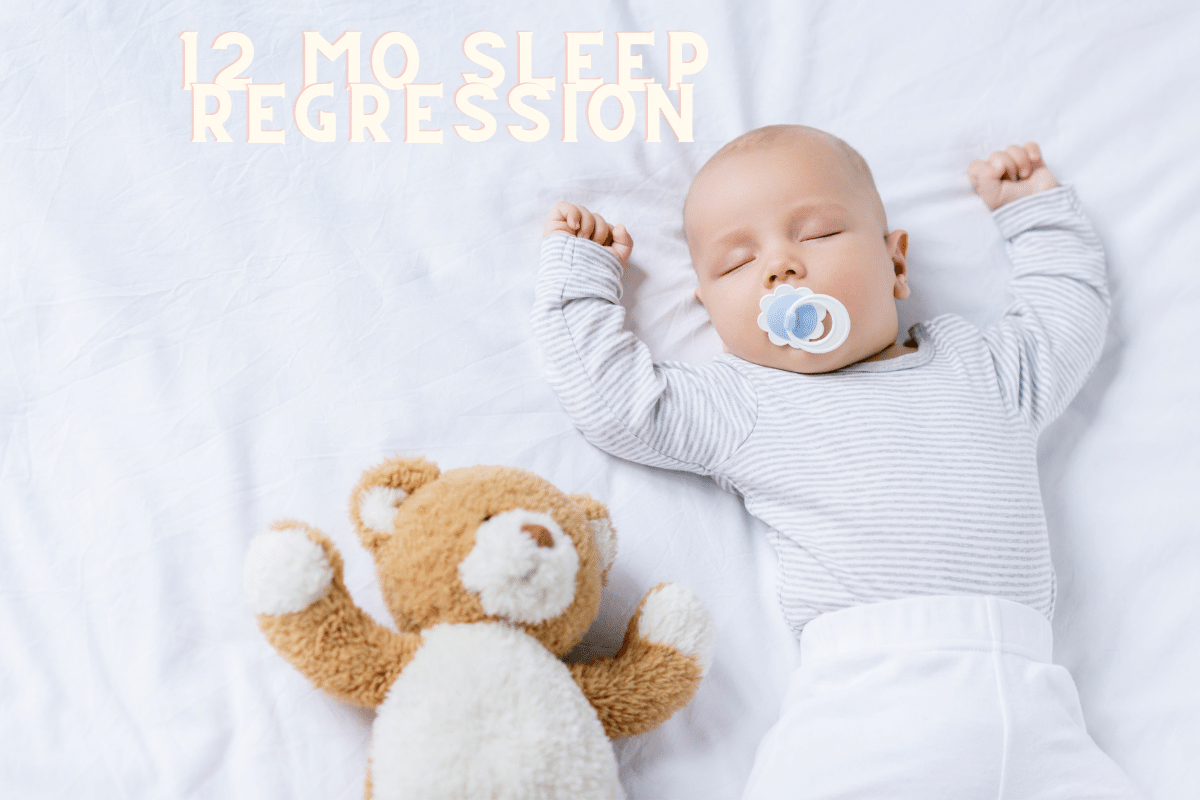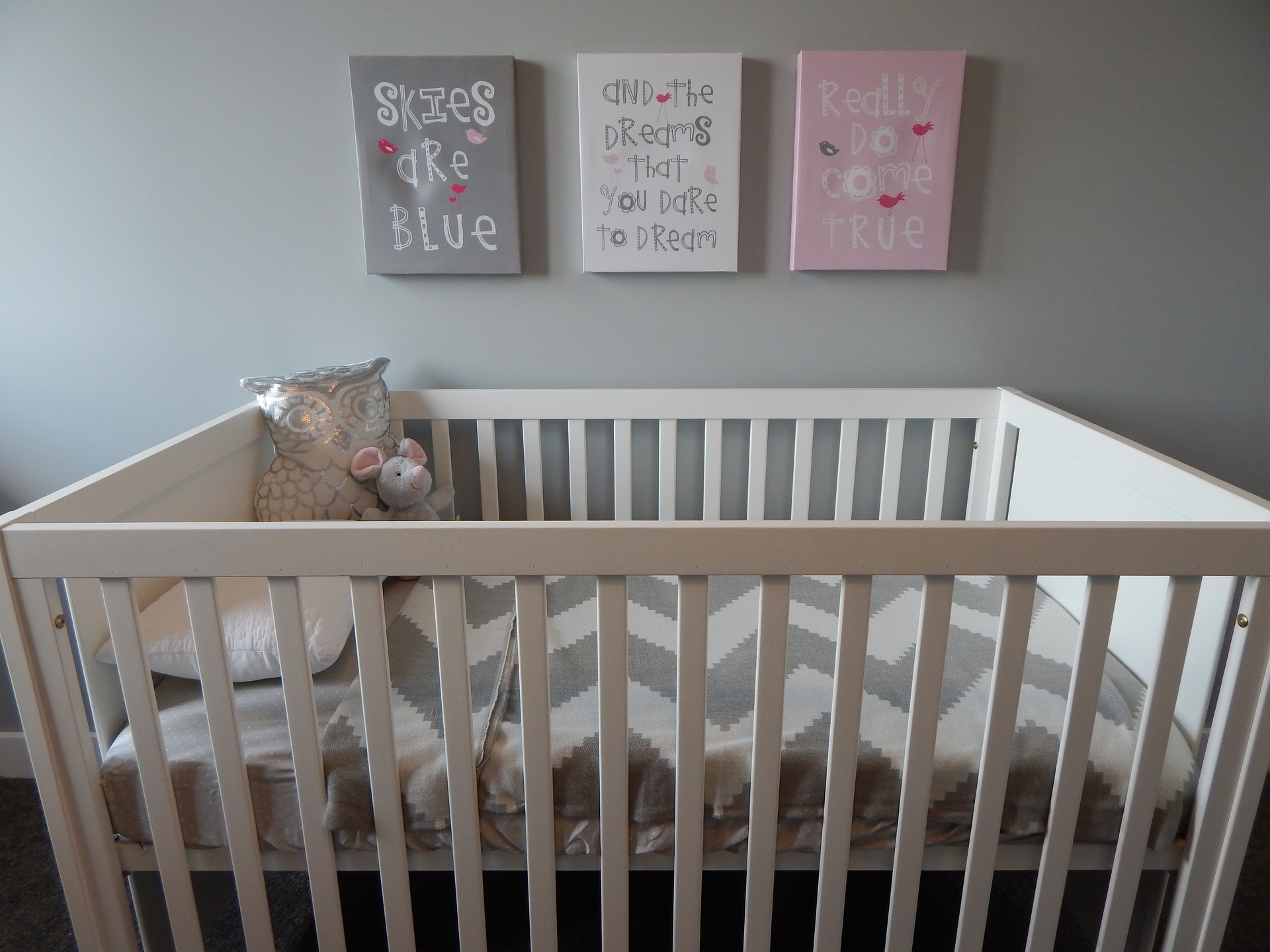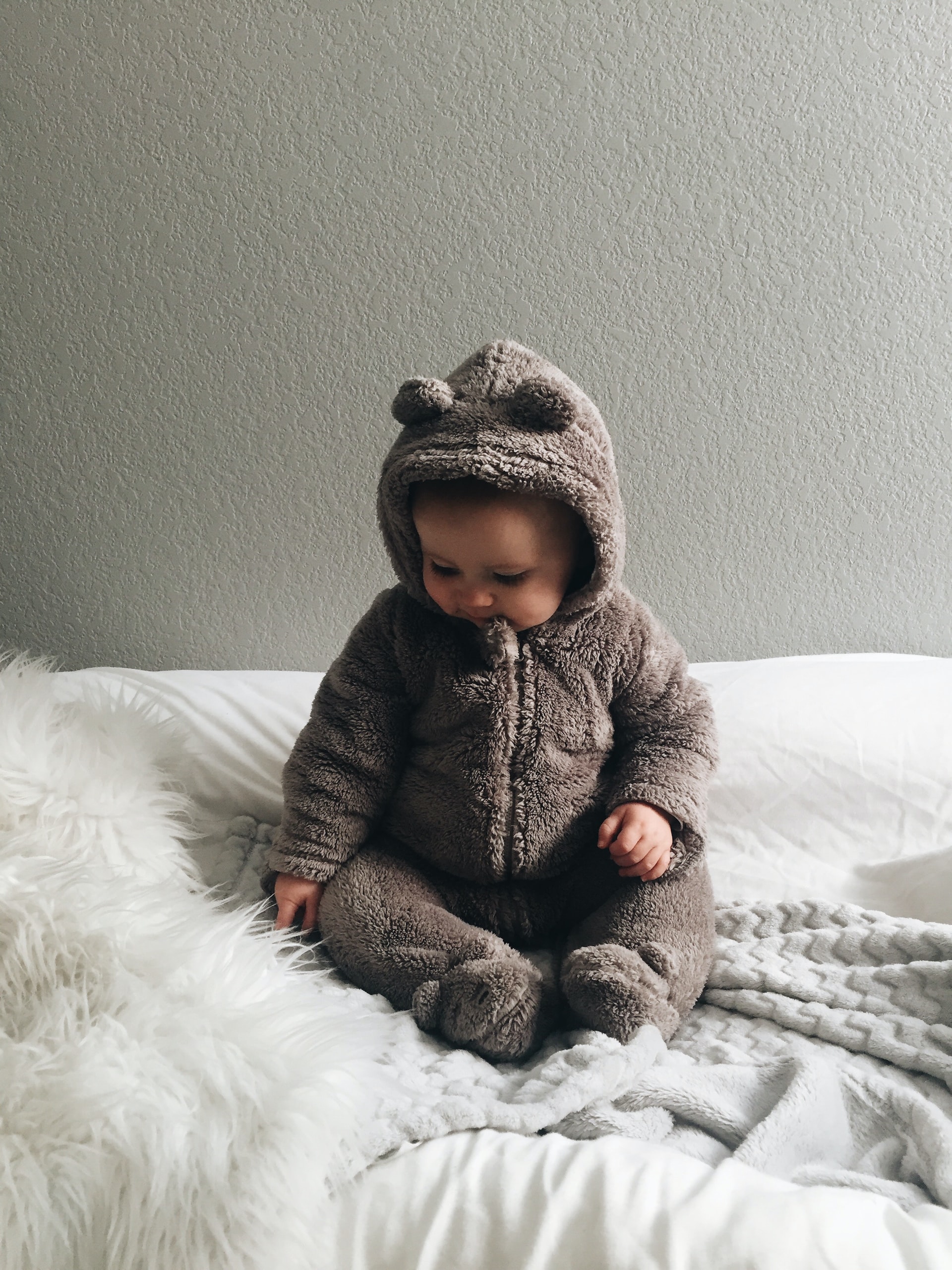Congrats on your child becoming a year old! It must have been a memorable ride: joy, emotion, tears, laughter, amazement, and whatnot! However, now this sleep regression thing is getting the best of us.
Everything has been taken care of so far by you and your partner except a few good nights rest.
My name is Sharon Dunn and I am here today to talk about sleep regression in babies.
Sleep regression is a natural transition in children, and it occurs several times in their initial years. 12-month sleep regression is one of those stages.
It’s not a big deal to come across sleep regression for the second when your kid is about twelve months because the first time it may have happened when your kids were at their six.
That’s why to keep you stay put, we’ve come up with this article delineating the signs, causes, and remedies of 12-month sleep regression.
What Is 12-Month Sleep Regression?
In a nutshell, a 12-month sleep regression occurs when your kid is about a year old and starts experiencing little sleep difficulties at night. It happens to many kids, and parents are always begging for a quick answer, but sometimes it is not that easy.
But it will pass, trust me!
As your kid is nearing its initial twelve months, it might sometimes find it hard to sleep. You may observe this sleep irregularity for a few days straight.
This symptom of sleeping less at night or sometimes taking more naps during the day is absolutely normal.
Since your one-year-old has come a long way in its physical and mental development, there will be some transitional signs. And the most common reflection of this transition is sleep regression.
Your kid will sleep much less than what they used to sleep about a month ago.
By the time a kid grows to about twelve months old, it starts holding toys and stuff in its hands, speaks more broken words, and almost starts to walk by itself. All these activities and skills make it even more nocturnal; hence regression.
4 Signs of 12-Month Sleep Regression in Babies
It’s important to take note of a few signs your kid will show during its sleep regression. Not all twelve-month-olds have the same physical and mental growth at this stage, so these signs will vary.
Let’s find out four signs of sleep regression in kids:
- Daytime Sleeps Beat the Nighttime Sleeps
A 12-month sleep regression may make your kid sleep longer in the daytime. The opposite may happen at night time as your kid may wake up now and then without completing their sleep.
- Becoming an All Nighter
Since the symptoms vary in different twelve-month-old kids, you shouldn’t be surprised to get some all-nighter tantrums and fusses from your kid. If your kid’s sleeping more during the daytime, it’s natural that it’ll skip the night sleep effortlessly.
- Showing Crankiness
Kids can absorb all their stresses, fears, and unfulfilled demands through sleep. They literally snooze it out while revitalizing their mind and body. However, things start getting out of hand when they can’t sleep through the night.
You’ll face some protests and crankiness from your kid. It might throw its toys or shriek at you for nothing. But as a wise mom, you’ve got to understand that it’s the drowsiness that’s talking.
- Waking up at Nights Frequently
Initially, it might seem okay to you when your twelve-month-old starts sitting right up from its sleep in the middle of the night. Nonetheless, things will become a bit more challenging for you to handle if this recurs consistently.
Keeping all worries aside, you’ll have to admit to it that your kid’s entering this particular regression stage.
7 Causes of 12 Month Sleep Regression in Toddlers
This regression may seem temporary, but it happens due to some substantial reasons. You can’t say that all these causes directly contribute to your kid’s sleep disturbance, however, you must know about them.
Knowing about the possible causes helps the parents aptly deal with the situation.
So, let’s find out the seven causes of 12-month sleep regression in babies:
- Learning to Talk
As kids start babbling when they’re about six months old or above, things turn in a new direction for them. And When they reach nearly twelve, their speaking improves, and they learn to speak a bit more clearly than before.
No wonder your little sunshine will mostly draw your attention by calling ‘mamma’ or ‘dadda.’ Shouting out these names or other words will continue till night and beyond, hence, making the night sleep less interesting to your kid.
- Learning to Walk
Your crawlers will become a toddler by the time they’re twelve months old, mostly. Even if it doesn’t, trying to walk by holding chairs, beds, sofas, etc. will be a daily fun time for it.
Naturally, this tottering or walking skill may even heighten the excitement in your kid after hours, making it want for more strolls around the house rather than falling asleep.
- Irregular Sleep in the Daytime
Meddling with daytime sleep can affect your kid’s nighttime sleep. A one-year-old will mostly get over their morning sleep and is prone to snooze more in the afternoon.
However, this shift in sleep pattern may make your tot hyperactive during the evening and before night sleep. As a result, it will become restless, finding it difficult to focus on its sleep.
- Nightmares or Fear of Darkness
Kids learn to identify objects present in their surroundings in their initial ten to eighteen months. Naturally, they also start recognizing shadows and darkness.
This new lesson also works as a distraction during their night’s sleep. Your daytime adventurer will cower before the mysterious shades and silhouettes, asking for your urgent attention to save it from its peril.
- Enjoying Freedom of Being Awake
Your toddler might suddenly start revolting against your napping and sleeping drills.
If your tiny soldier shows those little protests and grunts before going to sleep, it’s a sign of such sleep regression. So, handle it nicely.
- Separation Anxiety
No matter how revolutionary your tot becomes, it will always need to be present within your warm touch. As its surroundings begin to make more sense than ever before, seeing you off through its bedroom door will put it under stress.
So, this separation anxiety could be another reason behind your child’s sleep relapse when it’s twelve-month-old.
- Toothache
Tooth eruption is a never-ending story for all kids and parents. However, this possible teething could be another reason your kid’s unable to fall asleep.
If that’s the case, rub its gum with clean soft fabric, give chilled yogurt, or apply the vanilla extract to soothe toothache.
Best Tips to Deal with Twelve Month Sleep Regression
You should be equipped with the necessary tips and steps to deal with your kid’s sleep regression. Below, we’ve managed to round up seven tips to handle this situation:
- More Activeness During Daytime
Try to keep your tot busy during the daytime. Being busy learning new skills and participating in harmless physical activities, the mind and body will prepare themselves to doze off at night.
- Attention Might Be the Key
You should be there when your kid’s falling asleep. Humming or singing to your kid will ensure a secure bond between you while putting it to a night of sound sleep for the night.
- The Same Bedtime Schedule
Try not to skip the regular bedtime schedule for your toddler. Missing out on its daily sleep schedule might seem okay, but later this will interact with your kid’s night sleep heavily.
- Don’t Peek into the Bedroom Frequently
You better learn to limit your visit to your baby’s room at night. Even if your kid wakes up at night and you know it, let it sleep back on its own.
Furthermore, even if you enter its room out of concern, don’t take it out of the room. Instead, stay by its crib, and help it relax and get back to sleep.
- Limit Playtime Before Bed
Daytime activeness is okay because that will help your kid get more sound sleep at night. But if you’re letting your kid play before bed, it’s highly unlikely that it will easily give in to sleep.
- Connect Your Toddler with Its Bed
When you notice your kid’s yawning or feeling absent-minded, it might be the time to take it close to its bed. Do it several times to make your kid associated with its sleeping place.
Hence, your baby will learn about its sleeping zone and fall asleep without any fuss in its bed at night.
- Make the Bed Comfortable
Declutter your kid’s bed as it’s about to fall asleep. Remove all the toys and objects from the crib it has piled up there during the day. Lay a soft bed sheet under its back so it doesn’t feel uncomfortable during sleep.
Also, keep the room temperature warm while its surroundings are dark, so your kid can slide into sleep without much distraction.
The Expected Timeline
Each type of sleep regression, be it 6-month, 8-month, or 12-month, wears off within fourteen to fifteen days. But don’t get agitated if it lasts a little longer.
The timeline of your kid’s sleep irregularity may vary depending on its mental or physical state, environment, nutrition, etc.
The toddler will slowly get used to the new skills it’s learned. Besides, its natural napping clock will come around within a few days.
For this reason, their temporary instinct of staying awake throughout the night wanes, and soon enough, you’ll smile at your baby’s snoozing heavenly face in its crib.
Nevertheless, most parents nowadays learn sleep training which is a technique to support children to go back to their normal sleeping schedule.
You can opt for this training which, upon starting early, may enable you to control your kid’s sleep habit from sloping to five to six hours from nine to twelve hours.
Can All 12-Month-Toddlers Become Victims of Sleep Regression
There are some rare kids who’ve never come across sleep regression when they were about twelve months old.
But the same kids might experience this phenomenon reaching fifteen months or later.
Since backsliding in a sleeping pattern is mostly related to a certain developmental condition, and each child is different, you can’t say all of them fall under the same regressive timeline or category.
However, more or less, each child is expected to go through sleep regression in its first few years.
Parental Care During Sleep Regression
We understand your mental turmoil while you’re taking too much hassle on your shoulder during a sleep regression. Handling the babies at this point may feel arduous, but you must accept it. Sooner, the better.
However, it doesn’t mean you wouldn’t nourish yourself while getting through the sleep regression session. Make sure you:
- ask your friends or family to give you a hand
- share the caring responsibilities with your hubby
- maintain a comfortable and hygienic sleep arrangement for yourself
- be optimistic and patiently support your kid to get through the regression period
When to Call a Pediatrician
If the sleep regression is causing your toddler to lose a substantial amount of sleep every day (less than 11 to 15 hours), it’s natural. But if you’re too worried, seeing a pediatrician could help you out.
Moreover, look out for the below signs in your little master:
- Kicking and slapping during sleep
- Continuous audible snoring
- Drop in appetite
- Weight loss
If you notice the above, consult a pediatrician. Although you can’t control the situation, professional expertise will always come in handy.
Get your kid regularly checked, so the doctor can provide you with guided instructions. This will put your mind at ease while enabling you to handle your kid with care.
Sharon Dunn’s Final Thoughts
We hope you’ll be now comfortable dealing with your kid’s 12-month sleep regression condition. The very first thing you need to be assured of is its natural transition.
Don’t hold out any unrealistic hope that your kid won’t come across this sleep irregularity, nor do you ask for it to get over at its quickest. Cutting on napping hours for a few days won’t certainly harm your kid.
Rather, patiently support your junior as per a reliable pediatrician’s guideline. Things will get back to normal in due time.
Trust me, I went through this four times!
Sharon











